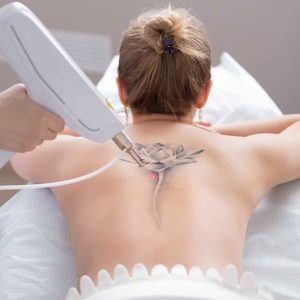Eczema is a long-term condition which causes the skin to become dry, red, itchy, and cracked. It is most common in children and can improve over time, although many adults find that they still have flare-ups of eczema during periods of stress. The most common form of eczema is atopic eczema, which can affect any part of the body but is often found inside the elbows, knees, on the neck, hands, cheeks, and scalp.
Eczema and dermatitis mean the same thing; inflammation of the skin characterised by redness, swelling, itching and excoriation (scratch marks) in the acute form. In the chronic or persistent form, regular rubbing of the skin through itching and scratching, leads to thickening or ‘lichenification’, scaling and post-inflammatory darkening of the skin.
Alternative names: Atopic eczema, dermatitis, skin allergy, contact dermatitis, lichen simplex, nodular prurigo, sensitive skin, seborrhoeic dermatitis, asteototic eczema, constitutional eczema, allergic eczema, irritant dermatitis, venous eczema, stasis dermatitis, dishydrotic eczema, popholyx eczema.
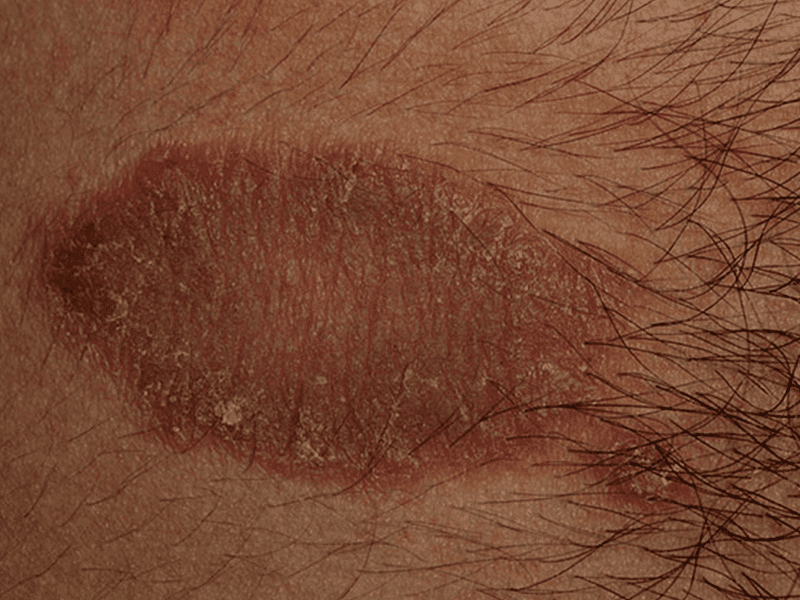

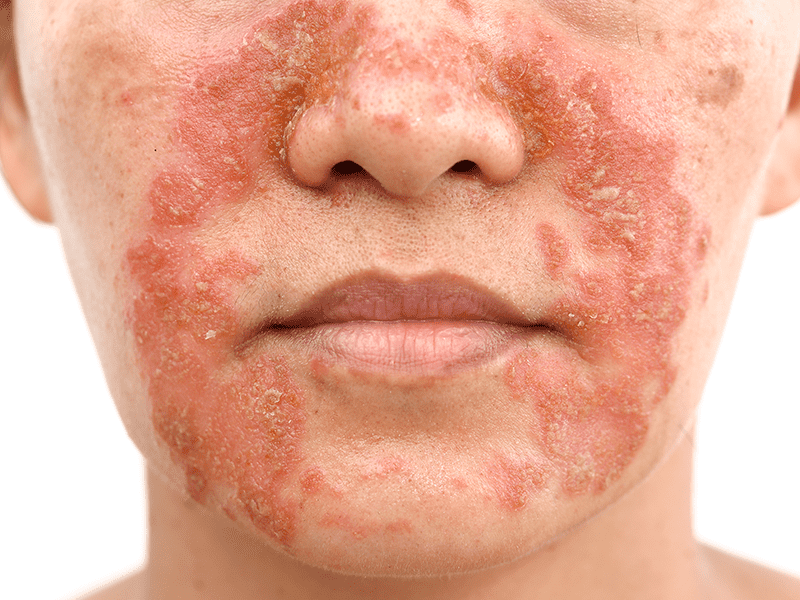
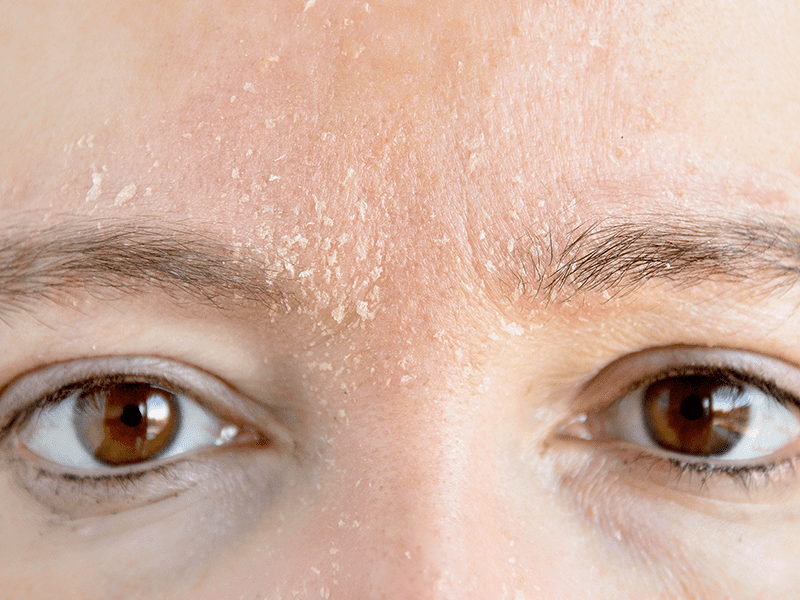
REQUEST A CALL BACK
Arrange a consultation with one of our expert dermatologists today.
WHAT CAUSES ECZEMA?
The cause of atopic eczema is unknown, but it often runs alongside other conditions including asthma and hay fever, and flare-ups are triggered by things such as soap, laundry detergent, stress, the weather, and occasionally food allergies. There are many different causes for the different types of eczema.
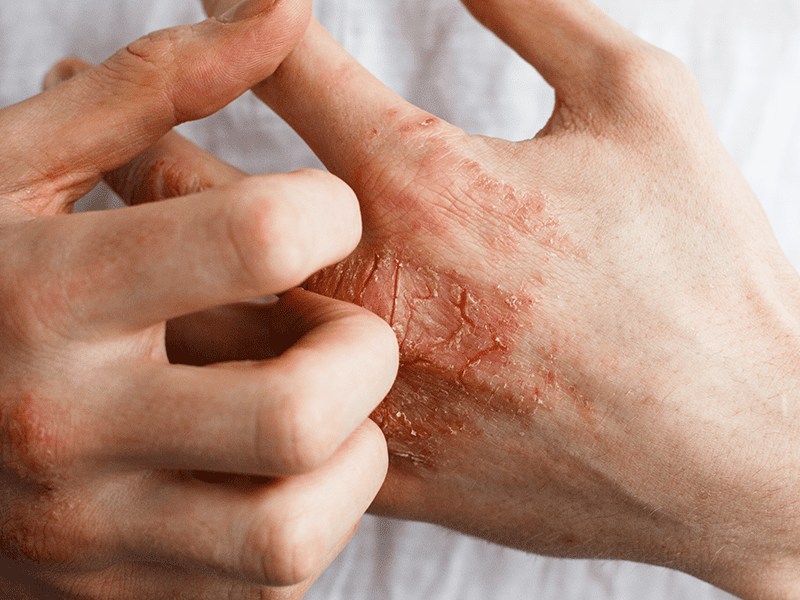
WHAT ARE THE SYMPTOMS/TYPES OF ECZEMA?
- Atopic eczema; common in children and related to other allergic conditions such as asthmas and hay fever.
- Allergic contact dermatitis: an eczema caused by an allergic reaction to something coming in to contact with the skin (such as fragrance or hair dye). This can be identified by means of a patch test.
- Irritant contact eczema: an eczema caused by a chemical irritating the skin (such as soap or disinfectants)
- Lichen simplex chronicus: a thickened itchy area caused by repeated rubbing and scratching
- Nodular prurigo: similar to lichen simplex, multiple small itchy areas of thickened inflamed skin
- Asteototic eczema: dermatitis due to dry, cracked skin that occurs with age
- Drug-induced eczema: eczema that might resemble any of the above types, but that is caused by medications.
- Pompholyx/Dishydrotic eczema: itchy tiny blisters (or vesicles) occurring under the skin on hands and feet.
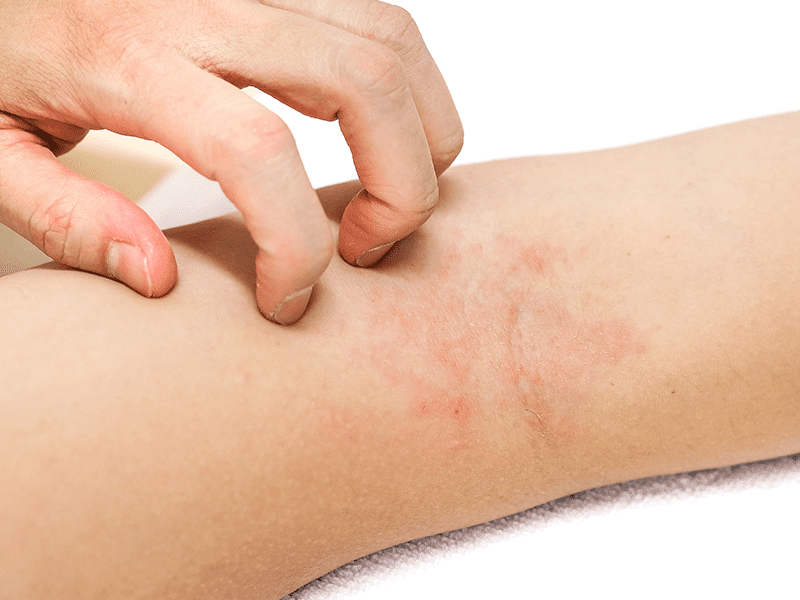
HOW CAN ECZEMA BE TREATED?
Although eczema isn’t a life-threatening skin rash, it can affect your quality of life as a sufferer. The appearance of the rashes can cause embarrassment for some. Flare-ups of eczema can be very itchy and uncomfortable; scratching the skin provides immediate short-term relief, but ultimately prolongs the problem by introducing bacteria to the broken skin and causing further infection and inflammation.
Stratum Clinics specialises in treating skin conditions and rashes including eczema. We can provide you with a course of eczema treatments to deal with flare-ups and ongoing symptoms, as well as providing advice on how you can manage your eczema and minimise flare-ups in the future.
There have been recent advances in the types of treatment for eczema that are available. Topical ointments and emollients can help to clear up an existing rash, whilst specialist moisturisers can help to prevent the skin from drying out. Oral treatments can also be prescribed to help clear a flare-up and aid in the long-term management of the condition.
Eczema treatments we offer include:
-
Topical creams
-
Specialist moisturisers
-
Oral prescription treatments
REQUEST A CALL BACK
Arrange a consultation with one of our expert dermatologists today.
WHY TREAT YOUR ECZEMA AT STRATUM DEMATOLOGY CLINCS?
Skin rashes can affect anyone of any age, and most of us will experience some sort of rash at some point in our lives. Although a rash can be uncomfortable, painful, and unsightly, the good news is that there are a variety of highly effective treatment options available.
We work with leading experts in the field of dermatology to ensure you have the best experience and treatment. Stratum Dermatology Clinics are regulated by the Care Quality Commission, are part of the British Association of Dermatologists and are top rated by patients on Doctify so you can assure safe and effective acne treatment with us.
HEAR FROM ONE OF OUR RECENT PATIENTS
Really helpful and pleasant staff, made to feel welcome and relaxed. Seen without delay and treatment explained in a clear, concise manner.
FREQUENTLY ASKED QUESTIONS
What does eczema look like?
Acute eczema is red with swelling of the skin, sometimes to the point of tiny blisters or vesicles appearing. It is often symmetrically distributed. Chronic eczema that has been rubbed repeatedly might be thickened and darkened.
How might it affect me?
The key feature of eczema is that it is itchy. This can be a minor distraction or a major feature that interferes with your life and prevent sleeping, working and concentration. In children it can prevent sleep which causes unhappiness at home. The condition can cause redness and thickening of the skin which might affect one’s appearance and confidence.
Can eczema be cured?
There is currently no known cure for eczema, though many articles in the media suggest otherwise. Treatment is focussed on the symptoms and minimising the triggers.
REQUEST A CALL BACK
Please fill in this form and one of our team will give you a call back to arrange a consultation with one of our expert dermatologists.

